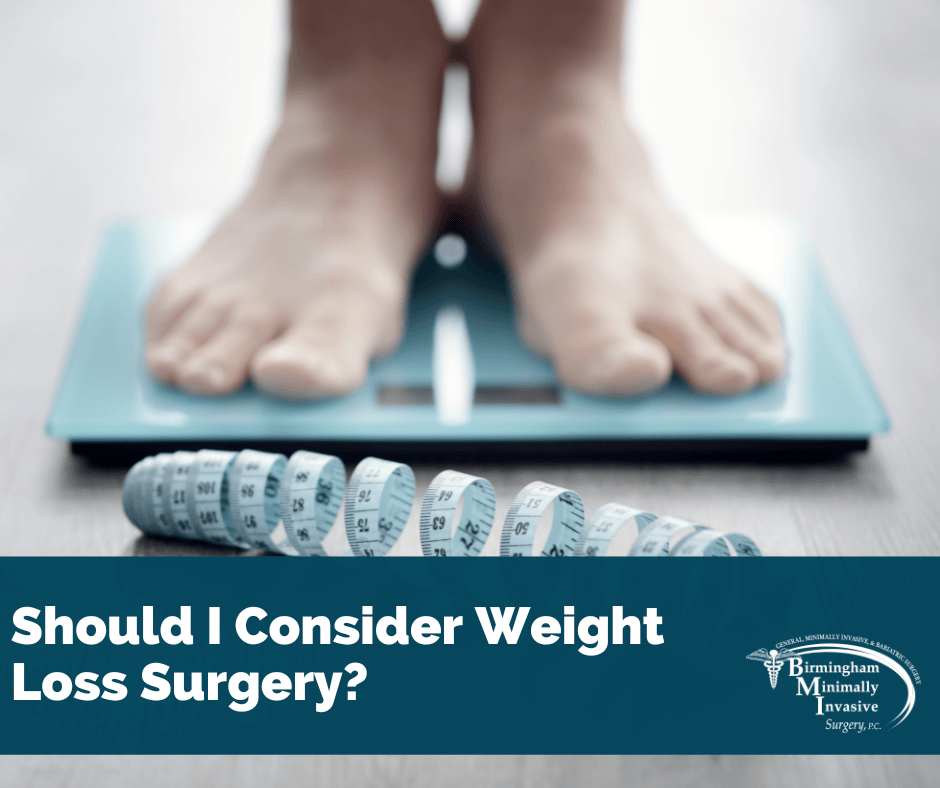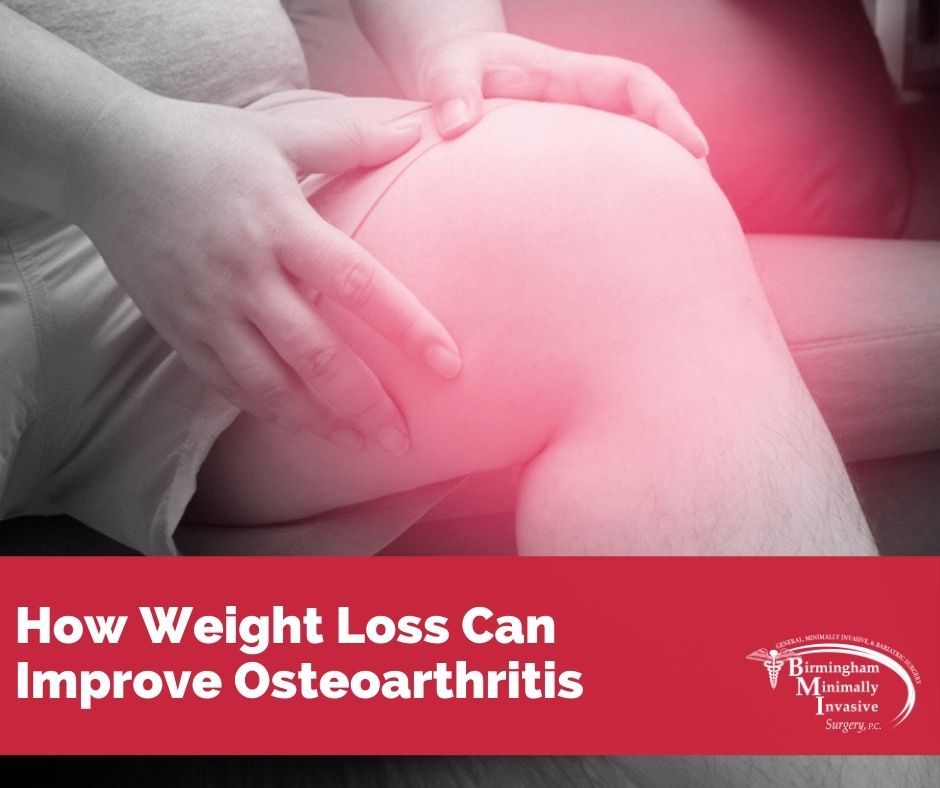

Are you experiencing pain, bloating, fatigue, or nausea after eating? If you have recently undergone gastric surgery, you could be encountering dumping syndrome. Dumping syndrome, also called rapid gastric emptying, is a condition that can develop after gastric bypass surgery and occurs when food moves too quickly from the stomach to the intestines. Normally, the stomach moves food gradually as digestive contents through the pyloric valve, which controls the release of these contents into the small intestine. In dumping syndrome, this process is disrupted, and the pyloric valve may allow an uncontrolled release of digestive contents, leading to various symptoms.
Don’t let your health dictate your social plans, energy levels, and personal comfort. Find the relief you deserve by learning more about the symptoms, causes, and treatments for dumping syndrome from the experts at Birmingham Minimally Invasive Surgery.
What Is Dumping Syndrome (Rapid Gastric Emptying)?
When a person experiences early dumping syndrome, also known as rapid gastric emptying, food is “dumped” into the small intestine without proper digestion. This process leads to symptoms of early dumping syndrome, such as bloating, swelling, abdominal pain, and other digestive issues, as well as changes in blood pressure.
In addition to these gastrointestinal symptoms, individuals with dumping syndrome may also experience systemic symptoms, including light-headedness and fatigue after meals, which may be related to changes in blood pressure. These symptoms can manifest anywhere from 10 minutes to 3 hours post-eating. Hormone signals coordinate the physiological responses to rapid gastric emptying, including the release of gut hormones and fluid shifts. Dumping syndrome is a condition often discussed in the context of digestive and kidney diseases, highlighting its impact on overall health and well-being.
Types of Dumping Syndrome: Early vs. Late
Dumping syndrome is divided into two main types: early dumping syndrome and late dumping syndrome, each with distinct causes and symptoms. Early dumping syndrome typically occurs within 10 to 30 minutes after eating. It is triggered by rapid gastric emptying, where undigested food moves too quickly from the stomach into the small intestine. This sudden shift causes the release of gut hormones and draws fluid from the bloodstream into the intestine, leading to symptoms such as abdominal cramps, diarrhea, nausea, and a feeling of fullness. These early dumping symptoms can be uncomfortable and may include bloating, sweating, and a rapid heartbeat as the body reacts to the rapid gastric movement of food.
Late dumping syndrome, on the other hand, develops 1 to 3 hours after a meal. This form is caused by the body’s rapid absorption of carbohydrates, which leads to a quick spike in blood sugar followed by a sharp drop, resulting in low blood sugar (hypoglycemia). Symptoms of late dumping syndrome can include shakiness, dizziness, weakness, sweating, and even confusion as blood sugar levels fall. Understanding whether you are experiencing early dumping or late dumping symptoms is important for managing dumping syndrome effectively and working with your healthcare team to find the right treatment approach.
SYMPTOMS OF DUMPING SYNDROME
This can be categorized into two types: early dumping syndrome symptoms and late dumping syndrome. Early dumping syndrome symptoms happen 10 to 30 minutes after a meal, whereas late dumping syndrome symptoms occur 1 to 3 hours after eating and are often caused by low blood sugar. Some common symptoms of dumping syndrome include:
- Bloating
- Swelling
- Abdominal pain
- Nausea
- Facial flushing
- Heart palpitations
- Dizziness and fatigue
- Diarrhea
- An uncomfortable feeling of fullness (even after small portions)
Some people may only experience mild symptoms, which tend to improve over time.
CAUSES
To understand the causes of dumping syndrome, it is essential to grasp the workings of the digestive system and the role of rapid gastric emptying. The digestive tract produces and releases hormones that regulate its functions. Gastric motility, which involves the coordinated movement of muscles, nerves, and hormones, controls the gradual emptying of the stomach’s contents into the small intestine. When food moves too quickly from the stomach to the intestines, a phenomenon known as rapid gastric emptying, the digestive tract releases an excess of these hormones. In this situation, it is often poorly digested food that enters the intestines too quickly. This triggers the body to shift fluid from the bloodstream into the small intestine. This fluid shift, along with other substances released by the intestines in response to undigested food, leads to the symptoms of dumping syndrome.
Dumping syndrome is commonly associated with gastric bypass surgery and other types of stomach surgery. There are two types of dumping syndrome: early dumping syndrome, which occurs within 10 to 30 minutes after eating, and late dumping syndrome, which can occur 1 to 3 hours after eating. In late dumping syndrome, the body absorbs carbohydrates rapidly from the small intestine, leading to fluctuations in blood sugar levels and symptoms such as hypoglycemia. Both types can result from the rapid transit of food into the intestines, causing a range of symptoms from abdominal pain and bloating to light-headedness and fatigue. Understanding these mechanisms is crucial for managing and treating the condition, particularly in digestive and kidney diseases.
At-Risk Groups for Dumping Syndrome
Certain groups of people are more likely to develop dumping syndrome, especially those who have undergone stomach surgery such as gastric bypass surgery or gastric sleeve surgery. Individuals with a history of stomach cancer, digestive and kidney diseases, or those who have had bariatric surgery are also at increased risk. These procedures can alter the way the stomach empties, making rapid gastric emptying more likely and increasing the chances of experiencing symptoms of dumping syndrome.
Other risk factors include eating too quickly, consuming high-sugar foods or sugary drinks, and having a medical history of rapid gastric emptying. People who do not make necessary dietary changes after surgery, or who continue to eat large meals or certain foods that are hard to digest, may also be more prone to severe cases of dumping syndrome.
If you fall into one of these at-risk groups, it’s important to be proactive. Eating smaller meals, avoiding sugary drinks and simple carbohydrates, and managing your blood sugar can help manage dumping syndrome and prevent symptoms from becoming severe. By working closely with your healthcare team and making the right dietary changes, you can reduce your risk and improve your quality of life after stomach surgery.
HOME REMEDIES
So, what can you do at home to try and treat this condition? The first thing that you need to do is try to change what you eat and how you eat. Some diet changes include:
- Do not drink liquids until at least 30 minutes after a meal
- Lie down for 30 minutes after a meal to alleviate symptoms
- Eat slowly and chew food thoroughly
- Choose complex carbohydrates and whole grains instead of simple carbohydrates
- Eat more protein and increase your fibre intake
- Avoid dairy products
- Avoid alcohol
- Consider using guar gum to thicken foods and slow gastric emptying, if tolerated
Managing your blood sugar levels by avoiding foods high in table sugar can also help alleviate symptoms of dumping syndrome.
Eating 6 small meals daily instead of the traditional 3 meals daily may be beneficial. Your doctor will recommend what specific foods you should avoid and any other steps you need to take to prevent dumping syndrome symptoms. Strategies to slow gastric emptying, such as adding guar gum, may also help.
POST-OP BEST PRACTICES AFTER GASTRIC BYPASS SURGERY
If you have had stomach surgery and want to try and limit your symptoms, do not attempt to just “power through” dumping syndrome symptoms. Instead, rest whenever you feel tired. Ample rest will allow your body to regulate its processes.
Daily walks may help alleviate feelings of bloating and puffiness if you can. We also recommend not lifting anything that may cause you to strain, such as a vacuum cleaner, a child, bags of dog food, or a heavy briefcase.
Find Relief from Dumping Syndrome
You deserve to enjoy dinner with friends or breakfast with your family without worrying about possible side effects. If you notice any symptoms of dumping syndrome, it’s essential to contact a doctor. A medical professional may recommend an oral glucose tolerance test to diagnose late-phase dumping syndrome. Healthcare providers diagnose dumping syndrome based on your symptoms and may use additional diagnostic tests, such as the hydrogen breath test, to confirm the condition. Seeking professional medical care ensures you receive an accurate diagnosis and appropriate management. A medical professional will be able to analyze your unique symptoms and advise treatments to give you relief. Don’t let your health dictate your social plans, energy levels, and comfort!
TREATMENT AT BMI SURGERY
If you are struggling with dumping syndrome, don’t hesitate to contact Dr Long and his team today. Dietary modifications are considered the main treatment for dumping syndrome, helping to manage symptoms caused by the rapid movement of food from the stomach into the small bowel. Doctors may use the Dumping Symptom Rating Scale to assess your symptoms and determine the best course of treatment. While most cases are not life threatening, severe cases can be serious and require prompt attention. Unintended weight loss can also be a complication of dumping syndrome. Proudly serving the Birmingham area, we specialize in all types of bariatric surgery and can help you with post-op recovery. Call us today at 205-850-1973 or online to schedule a consultation.
We look forward to helping you take back control of your health!


 There are many ways to lose weight, including dieting, exercise, and even some medications that are approved for weight loss. For some of us, however, these options aren’t adequate to get started on the journey. When you need help achieving significant weight loss,
There are many ways to lose weight, including dieting, exercise, and even some medications that are approved for weight loss. For some of us, however, these options aren’t adequate to get started on the journey. When you need help achieving significant weight loss, 
 Starting a family is a common goal that many people share. But if you’ve struggled with obesity and are hoping to achieve that goal, there are many misconceptions out there about your options. Many women aren’t sure whether
Starting a family is a common goal that many people share. But if you’ve struggled with obesity and are hoping to achieve that goal, there are many misconceptions out there about your options. Many women aren’t sure whether 






